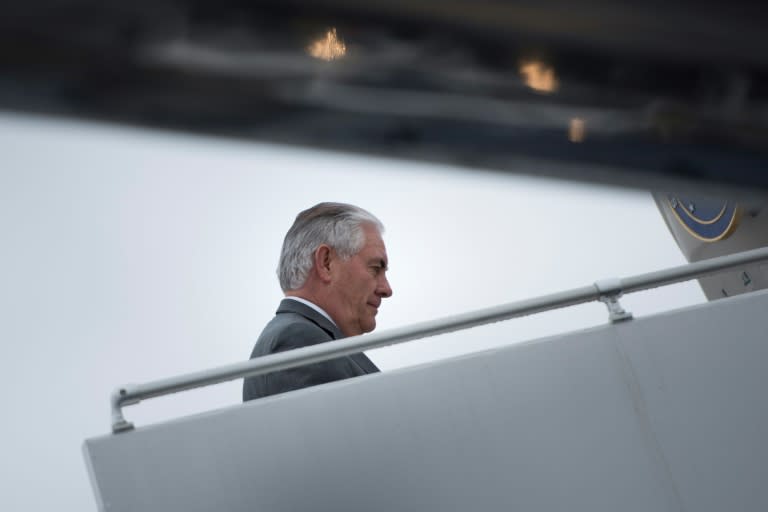Trump envoys in Europe: Talking points
US President Donald Trump's envoys have tried to reassure allies that Washington remains committed to its global role and responsibilities. But after a week of top flight diplomacy, it is unclear if US Vice President Mike Pence, Secretary of State Rex Tillerson and defence chief James Mattis have got the message across. Here is a summary of the issues and exchanges: - US REASSURES ALLIES - US President Donald Trump spooked Washington's NATO allies when he dubbed the alliance "obsolete" and said he wanted to work with Russia to counter Islamic terrorism, now the main threat to international security. Pence insisted that Trump's NATO commitment was "unwavering" and never in doubt. But there was an important caveat -- the allies would have to pay their share of the bill and increase defence spending to the equivalent of two percent of annual economic output. Otherwise, as Pence put it, the "foundations" of the alliance could be eroded. For the allies, the two percent is a target, not necessarily an end point, and they say their military spending would be counted higher if they include operations mounted in the common cause, such as fighting Islamic State jihadis in Syria and Iraq. - RUSSIA, UKRAINE - Trump's softer line on Russia has caught the allies on the wrong foot since they agreed, at President Barack Obama's urging, to the biggest military build-up since the end of the Cold War in response to the more assertive Moscow highlighted in the Ukraine crisis. Pence, Tillerson and Mattis insisted Washington would do no deals with Russia if they were not in keeping with US interests and those of its friends. On Ukraine, Pence said the US administration would hold Russia to account, with full implementation of the Minsk ceasefire accords the only way forward to a solution. The US officials made no mention of Trump's possible Russian ties, put in the spotlight after National Security Adviser Michael Flynn was forced to resign over contacts with Moscow's ambassador in Washington. Russian Foreign Minister Sergei Lavrov meanwhile offered Washington the option of a "pragmatic" relationship but denounced NATO as a Cold War relic and called for a "post-West" world order. - EUROPEAN UNION - Trump's praise of Britain's vote to leave what he said was a doomed EU was very badly received in Brussels given fears London may capitalise on its US links to try to cut a better Brexit deal. German Defence Minister Ursula von der Leyen warned Washington such remarks could have "a direct impact on the cohesion of our continent," stressing that a stable EU and NATO were also in America's interest. For her part, German Chancellor Angela Merkel warned that no country could "go it alone" and only by working together could pressing global problems be resolved. Pence made no reference in his remarks to the EU, a point noted by French Foreign Minister Jean-March Ayrault. The US vice president travels Sunday to Brussels for talks with the Belgian government, and top EU and NATO officials. - PRESIDENT TRUMP - The big question remains -- the president's envoys have made their case but will their boss stick with it? Republican Senator John McCain, who was also in Europe, conceded it was sometimes difficult to read Trump. Sometimes he "contradicts himself, so some of us have learnt to watch what the president does as opposed to what he says," he said. British Foreign Secretary Boris Johnson urged his peers to cut the new administration some slack. "Give these guys and give Donald Trump a chance. Yes it's a new style of government, but don't underestimate a new approach to deliver results," Johnson said.




